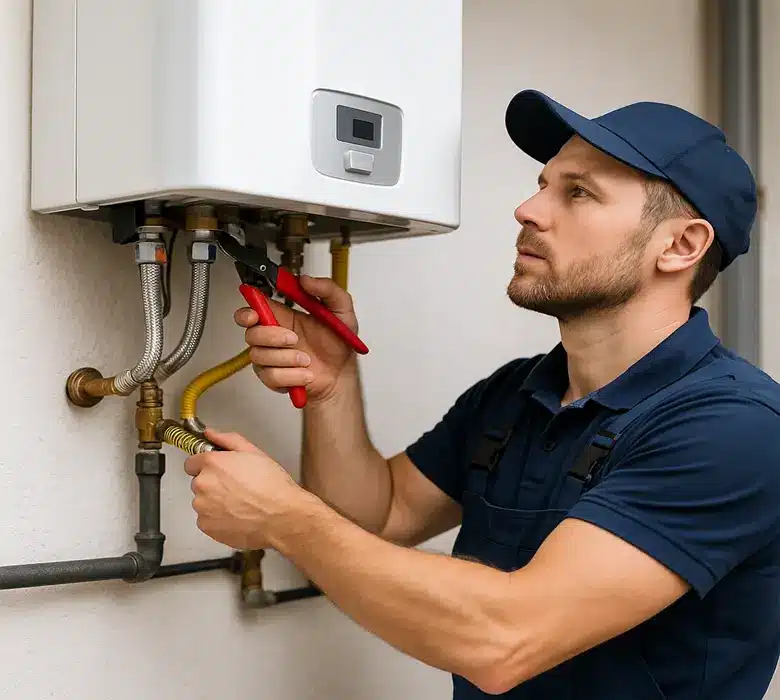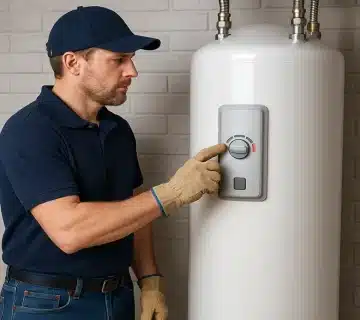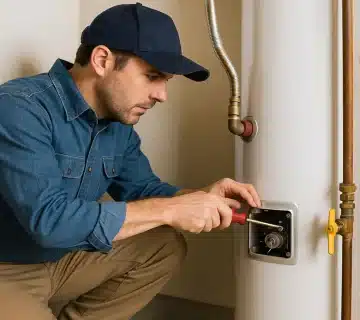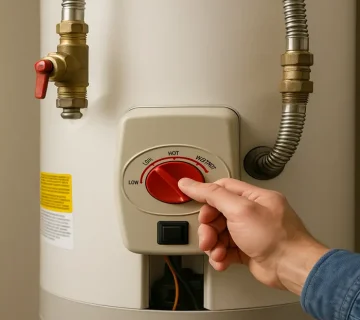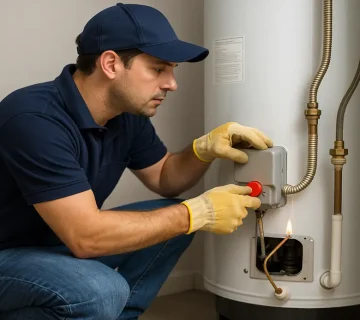Finding the best tankless water heater 2025 can feel overwhelming, especially with dozens of new models hitting the market each year. Tankless, or “on-demand,” water heaters are becoming the go-to choice for households that want endless hot water, energy savings, and a compact design. In this guide, we’ll highlight the best options available in 2025, explore why going tankless makes sense, and share expert tips for choosing the right system for your home.
Why Go Tankless in 2025?
Unlike traditional storage tanks that constantly heat water, tankless systems only work when you turn on a faucet or appliance. This simple difference creates multiple benefits:
- Energy efficiency – save 20–40% on energy costs.
- Endless hot water – no more cold showers.
- Compact size – mount on a wall, saving floor space.
- Longer lifespan – up to 20 years with proper care.
Still unsure about switching? Here’s a full guide on tank vs tankless water heaters.
Best Tankless Water Heater 2025: 7 Models to Consider
Here are our top picks for the best tankless water heater 2025, combining performance, efficiency, and reliability:
- Rheem Performance Platinum
- Gas-powered with strong flow rates.
- Pros: great warranty, reliable performance.
- Cons: higher upfront cost.
- Rinnai RU160iN
- Excellent for large households.
- Pros: high flow capacity, long-lasting parts.
- Cons: professional installation required.
- Noritz NRC66DV
- Compact and efficient.
- Pros: affordable, durable.
- Cons: not ideal for very large families.
- EcoSmart ECO 27 (Electric)
- Best for apartments and small homes.
- Pros: budget-friendly, space-saving.
- Cons: requires significant electrical capacity.
- Navien NPE-240A
- Premium gas model.
- Pros: built-in recirculation, top efficiency.
- Cons: expensive.
- Stiebel Eltron Tempra 29 Plus
- German-engineered electric heater.
- Pros: precise temp control, sleek design.
- Cons: higher cost.
- Bosch Greentherm C 1050 ES
- Solid mid-range option.
- Pros: reliable, compact.
- Cons: flow rate may not suit very large homes.
Key Factors to Consider Before Buying
- Flow rate (GPM): Match your peak demand (multiple showers/appliances).
- Fuel type: Gas units handle higher demand; electric suits smaller homes.
- Efficiency rating (UEF): Higher rating = lower bills.
- Warranty: Look for at least 10–12 years on the heat exchanger.
- Installation costs: Gas units may need venting; electric may require panel upgrades.
Installation & Maintenance Tips
- Hire a licensed plumber for correct venting and code compliance.
- Flush the system annually to prevent scale buildup.
- Add water softeners in areas with hard water.
- Combine with these energy-efficient water heater tips to maximize performance.
According to the U.S. Department of Energy, regular maintenance helps tankless heaters achieve their highest efficiency.
Common Mistakes to Avoid
- Undersizing the heater for your household demand.
- Ignoring installation requirements for venting or power.
- Skipping descaling in hard water regions.
- Choosing purely on price without considering long-term reliability.
FAQs
Q: Are tankless water heaters really worth it in 2025?
Yes. Newer models are more efficient, durable, and often eligible for rebates.
Q: How long does a tankless water heater last?
Up to 20 years with proper care, nearly double the lifespan of traditional tanks.
Q: Can I install one myself?
It’s possible for electric units, but gas units require professional installation for safety.
Final Thoughts
The best tankless water heater 2025 for your home depends on household size, energy source, and budget. Whether you choose a compact electric model for a small apartment or a high-capacity gas unit for a large family, tankless technology delivers unmatched convenience and efficiency.
By comparing features, checking ENERGY STAR ratings, and scheduling annual maintenance, you’ll enjoy endless hot water, lower energy bills, and peace of mind for years to come.

